Team effort to help obese ponies face a fitter future
Four ponies arrived at Belwade Farm Rescue and Rehoming Centre last year dangerously obese and in need of months of expert care.
Posted on 08/12/2021

Months of recovery have paid off for four obese ponies who came into the care of Belwade Farm, World Horse Welfare’s Rescue and Rehoming Centre in Aberdeenshire after their owner recognised that she was struggling to care for them.
Bombay, a handsome skewbald 5-year-old cob, weighed an astonishing 610kg on arrival and needed to lose the equivalent of two full-grown adult humans before he could be considered to be a healthy weight. The professional teams at the centre assess each pony and a weight-loss programme will be put together with restricted, low-calorie forage-based foods alongside an exercise plan which, in the initial stages of weight loss must be very gentle to enable joints to tolerate it.
After months of gradual weight loss, rehabilitation and learning basic handling and manners – essential to enable these ponies to be rehomed successfully – Max and Fontelroy are now happily rehomed together. Bombay has recently been rehomed as a companion and Chancer, having returned to Belwade following his rehomer’s change in circumstances, is currently recovering from a small operation. It is hoped that once he has made a full recovery he will be available for rehoming once again.
“In many ways overweight horses are harder to deal with than underweight ones – it is a real challenge to help them lose weight and increase their mobility. Weight loss is crucial but must be done slowly and carefully and it is likely that these ponies will need their diet manged carefully for the rest of their lives. Also, Bombay and Chancer, like so many of the ponies that come in, were not used to being handled, and hefty stallions will use their weight whenever they don’t want to co-operate. It’s a real testament to the teams here that these ponies came round so quickly and accepted handling and learned manners, making it easier for us to help them, but also ensuring that they have a future.”
Eileen Gillen, Belwade Centre Manager
Following the death of the owner’s partner, who had been the ponies’ main carer, World Horse Welfare was contacted and the four ponies, including Bombay and Chancer, were taken to Belwade. All four were coping with a number of welfare issues, including poor feet and parasite burdens, and all were morbidly obese.
Excess weight is often overlooked as a welfare concern but being overweight puts horses at risk of a number of conditions, such as the excruciatingly painful and potentially fatal illness laminitis, as well as putting huge extra strain on their joints. Any horse coming into one of the charity’s Rescue and Rehoming Centres will need a long, slow rehabilitation and, if overweight, this can take many months.
The skilled and dedicated teams at Belwade, and the three other World Horse Welfare centres in Lancashire, Norfolk and Somerset, help around 300 horses and ponies each year and Chancer and Bombay’s’ film shows what an incredible transformation that care and work achieves, but it is not possible without public support.
Although the centres reopened to the public in mid-August, they had been closed for 18 months due to the pandemic, but staff at the farms continued to take in, care for and rehabilitate horses like Chancer, Bombay, Max and Fontelroy despite seeing a 20% drop in income over the last year.
Recovery and rehabilitation can take many months, and involve a whole team of grooms and specialists before the horses and ponies are healthy and ready to be rehomed. If you would like to support the work of the teams at our Rescue and Rehoming Centres find out more about Sponsor a Stableyard.
Topics
Related News
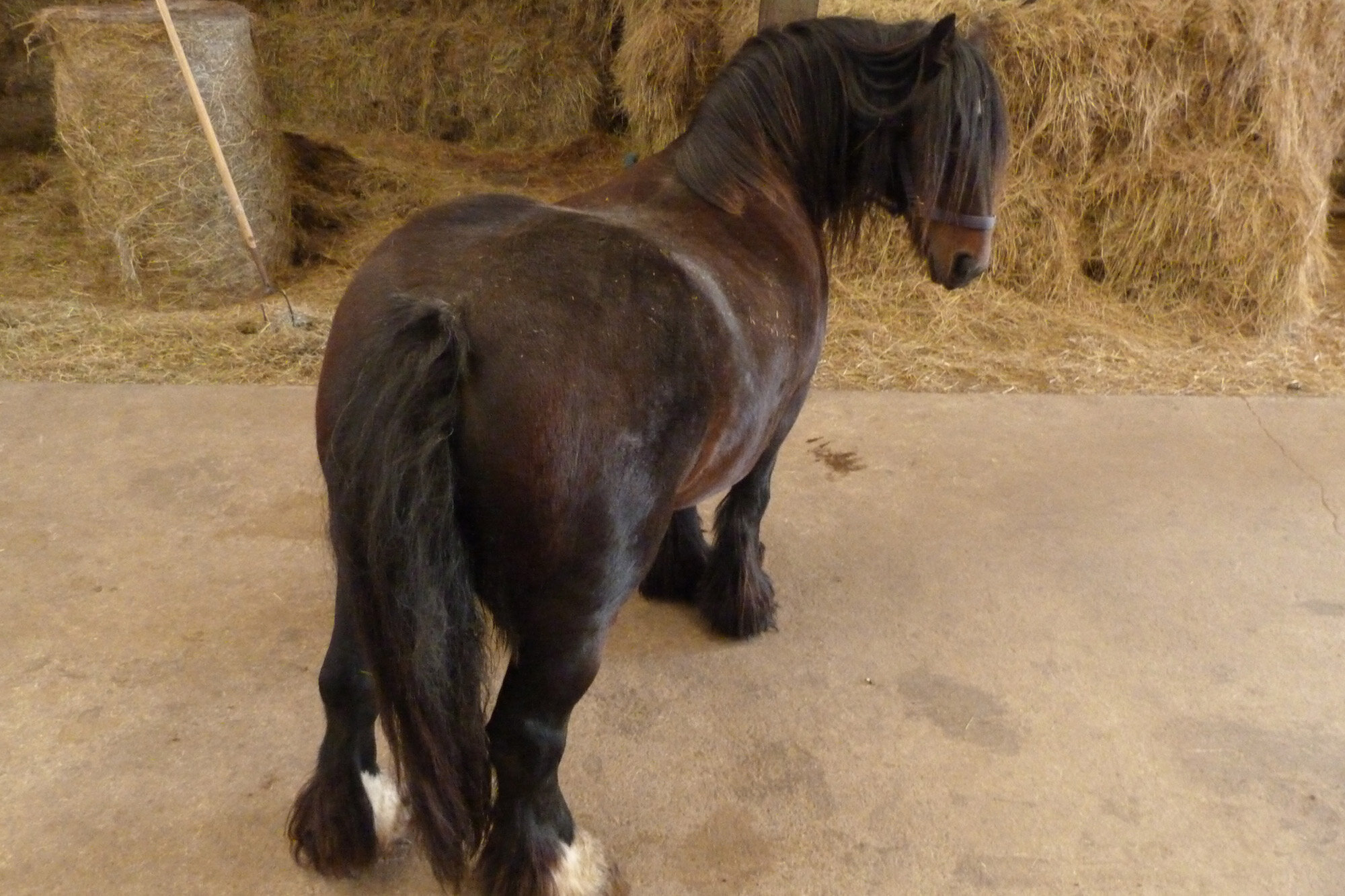
Thruppence was dangerously obese when she arrived
Thruppence has been transformed since she came into our care. Will you help other ponies in need this winter?
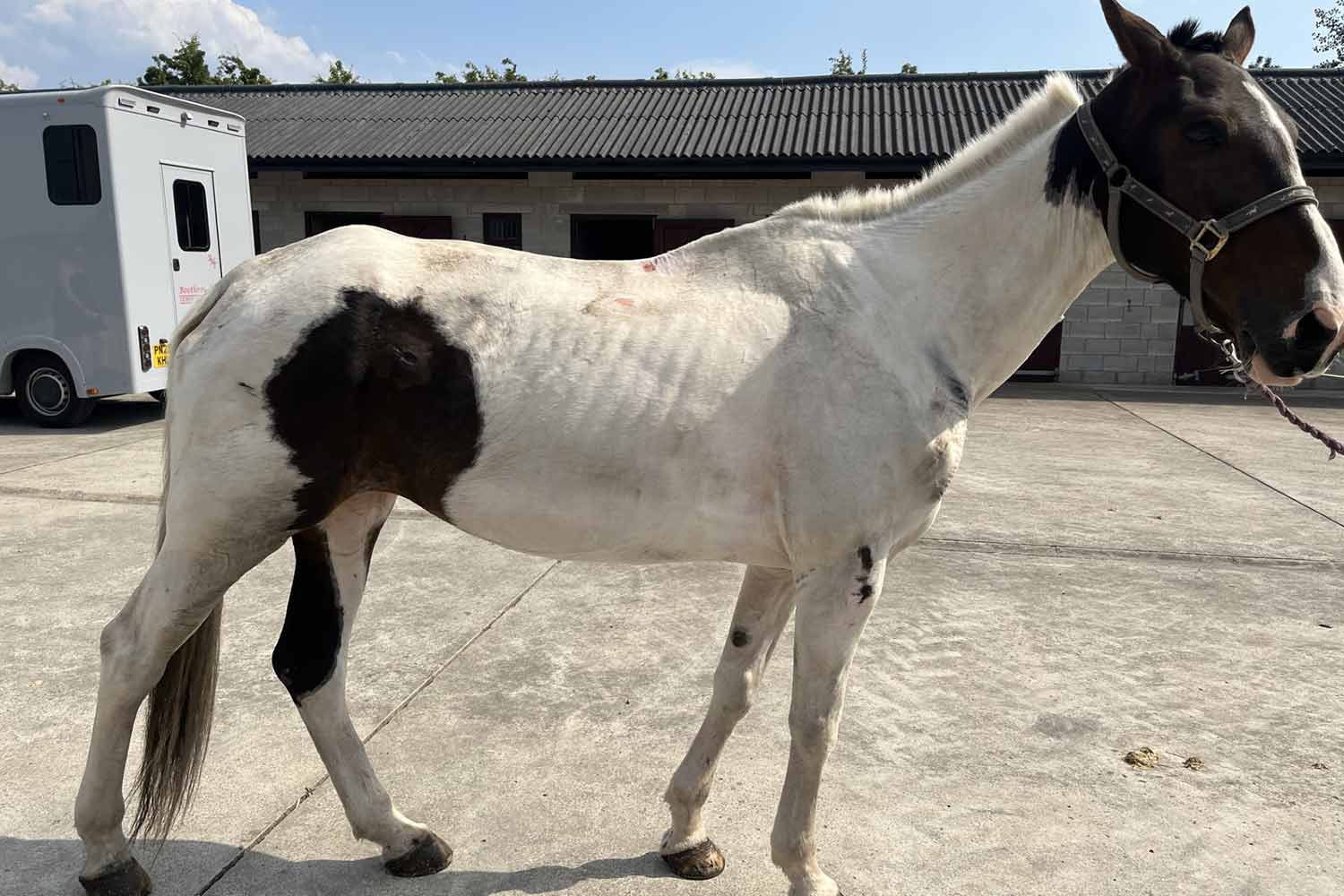
Horse owner found guilty of welfare offences as mare is rehabilitated at Penny Farm
Man banned from owning horses after driving pregnant mare to exhaustion at Appleby Horse Fair.
Recommended Blog Posts
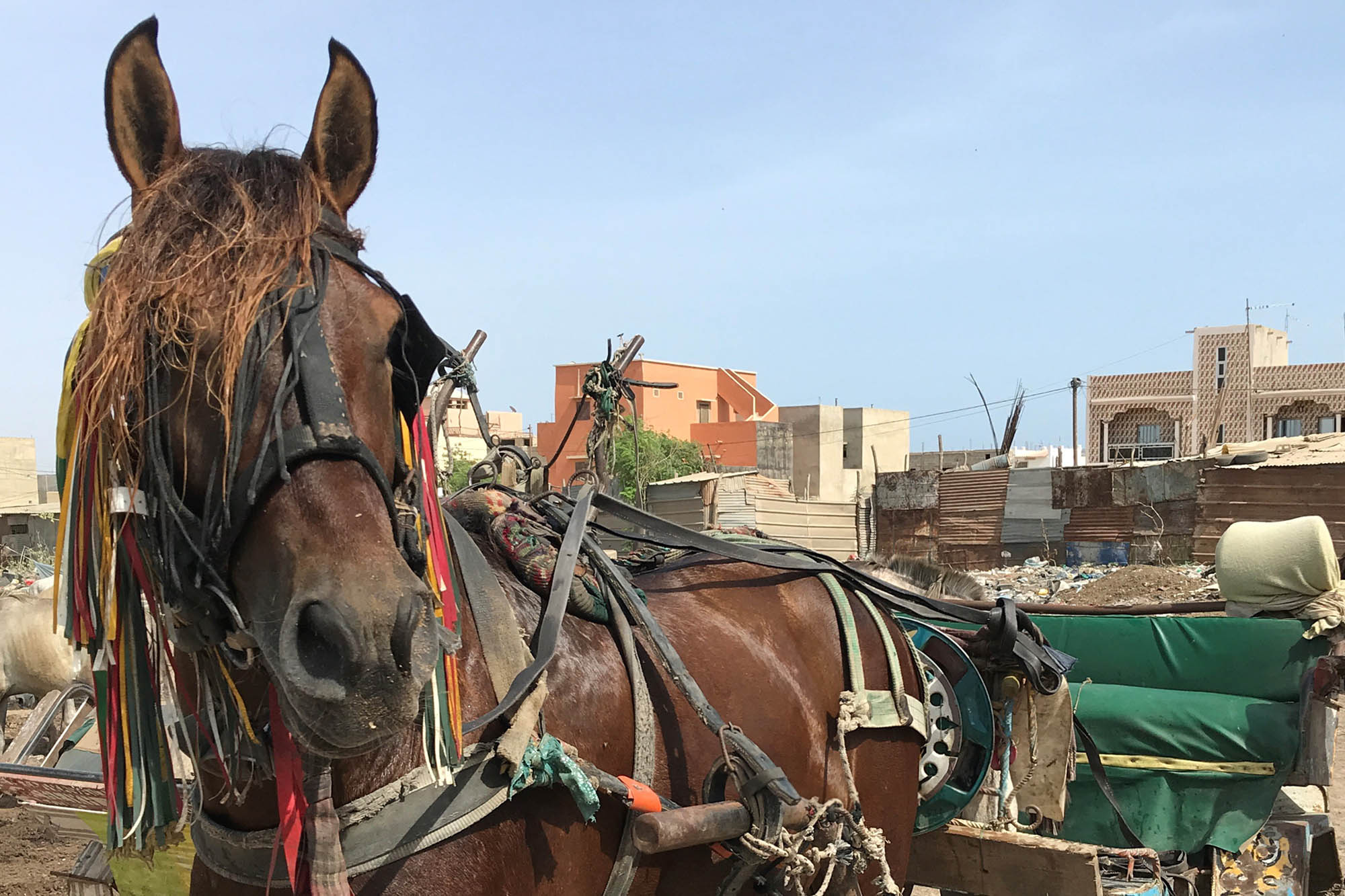
Analysing the success of community projects in Senegal
Bursary student Faye Al-Nakeeb takes a look at the impact of our project in Senegal on the welfare of local working equines.
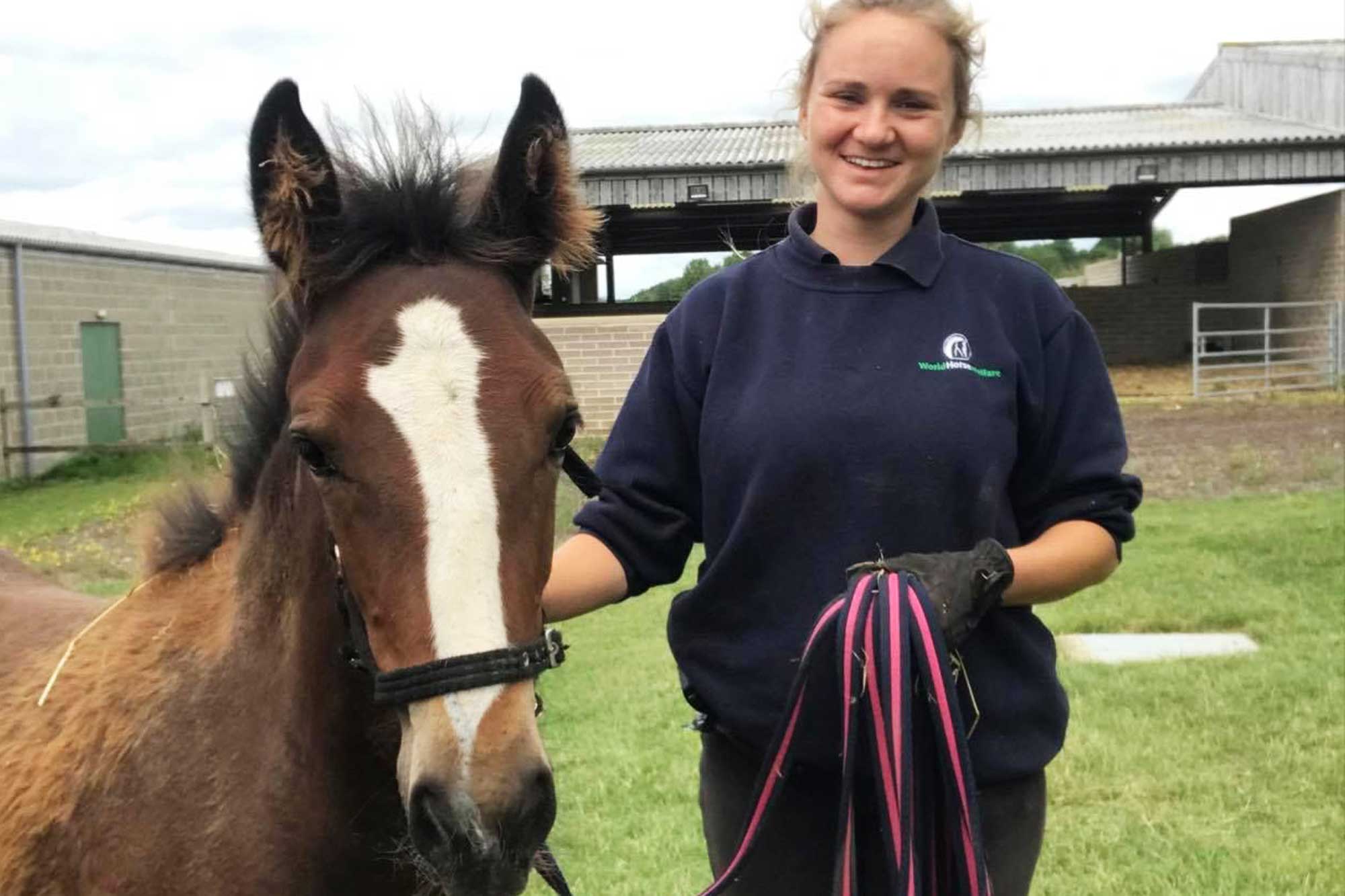
Buena’s story – how our foals are cared for from birth to rehoming
Senior Groom Steph introduces lovely filly Buena and explains how the team care for foals from birth right through to finding them a loving home for youngster handling.
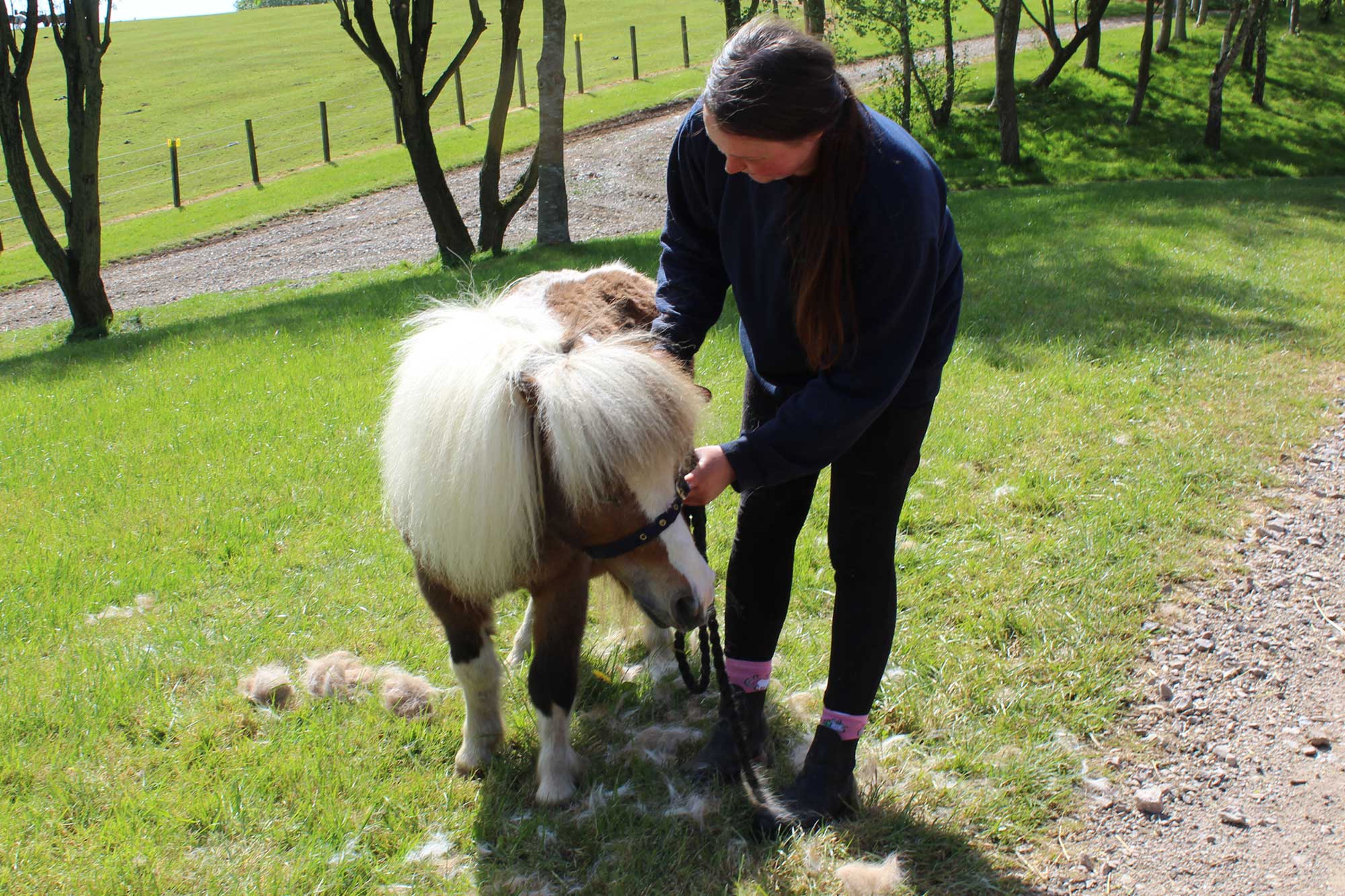
Ever wondered what a day in the life of a World Horse Welfare groom is like? Read on to find out!
Groom Lauren has been a member of the Penny Farm Rescue and Rehoming Centre since 2015 – find out how her day pans out during lockdown.
Enjoy reading stories like this?
Join over 55,000 other horse lovers and sign up for our email newsletter

Join over 55,000 other horse lovers and sign up for our email newsletter
Sign me up now